An Apollo Walk
Apollo is the name of the place my school has created. In almost fifty years, we have transformed a rude environment, adding roads, gardens, palm trees and roses, buildings and fountains—even a Greek-style theater. But all this is only external. More importantly, we have transformed ourselves and created a society worthy of the name ‘civilized.’ But that is another story and must wait for its proper moment.
Today I am working at a desk, doing data entry. It’s almost ten in the morning, when I will go out of the office for a walk and a change in impressions.
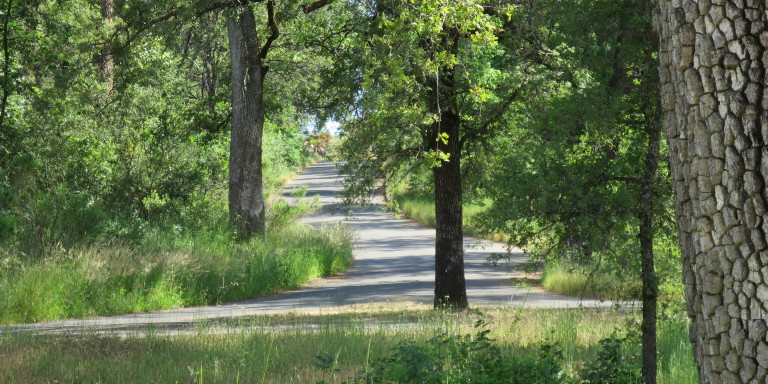
I step out the door, inhale the fresh air after the stale air of the office, briefly stretch out my arms and begin my walk. It starts with an uphill climb. I actually enjoy going uphill, working against the resistance. It makes me feel my strength, at least the amount that my sixty-three-year-old body still has.
Holding Aim – Working against Resistance
Working against resistance—yes, this is the inner work. I must resist the tendency to allow imagination to take over my inner world. This week I have a small aim to not let my gaze fall down when I am walking, so I must work against its tendency to look down, with my head soon following it. So often, when I fall into imagination, this is what happens.
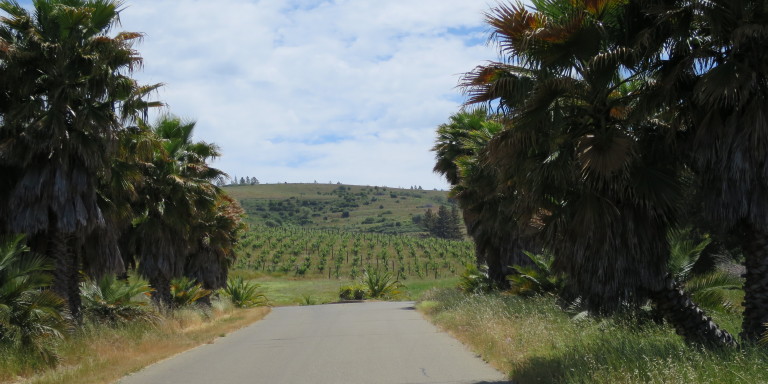
Let’s see how I do with my aim during the walk.
Certainly, self-remembering will never become automatic. Ouspensky says that each moment of creating consciousness requires consciousness. What a mystery! How should a machine initiate something that is not mechanical, not ‘of the machine’? Somehow it does happen. This being in a school and keeping pace with it fortifies the conscious spark that is in me.
I arrive at the top of the road that drops to my office and then turn to the right. The flags and the golden winged statue of the roundabout, high on a column, come into view.
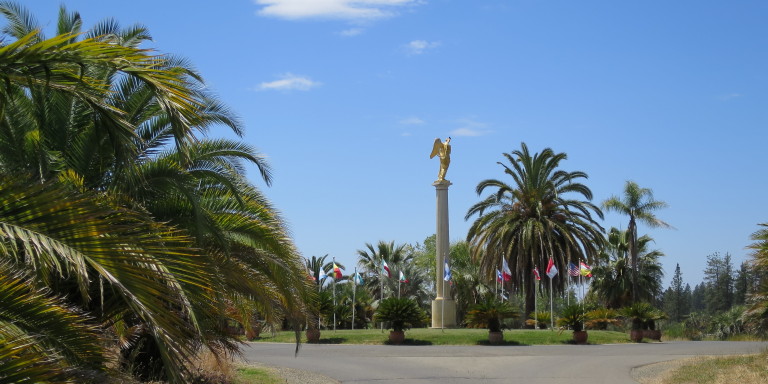
I reach the roundabout and take in the flags of Apollo, the wind blowing through them, and the statue high above.
Dividing Attention
Normally, my attention flows in the direction of the activity of the moment, but with divided attention, I hold some back in order not to lose self-awareness. I experience it as a kind of psychological holding of my breath. Once I begin this, however, my attention all too quickly collapses either to my internal world only or to the external world only. When this happens, I lose the sense of “I am here, now.”
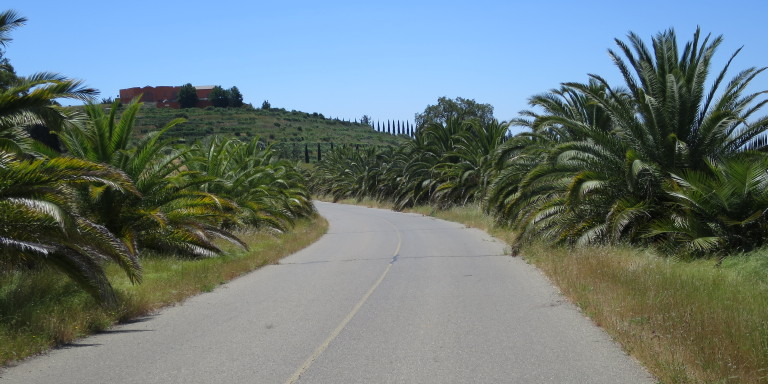
There follows a slowly-climbing road lined with young Apollo palm trees.
I find I am keeping my gaze level and seeing what is in front of me. The exercise is forgotten, but the aim is there. What a miracle to be aware that you are seeing something, to truly let the impression enter into some deep chamber inside. What enters is perhaps not even what we see, but some higher energy that is being carried along with the visual impressions. I probably won’t remember what I saw this morning, but the energy vivifies me in the moment. At least, as long as I maintain self-awareness.
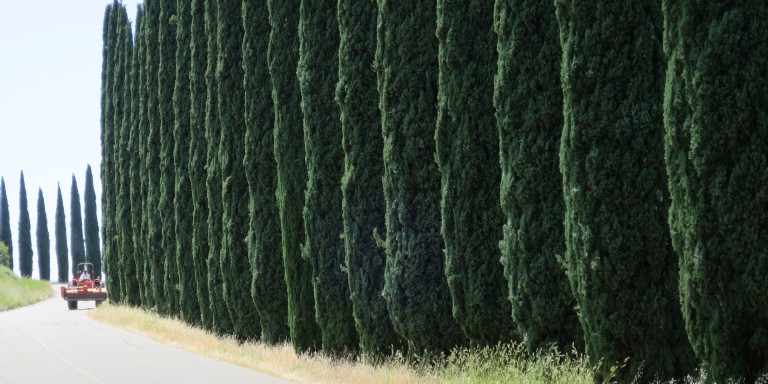
Then the road starts to climb steeply, lined with Italian cypresses, leading up to the winery. I feel the resistance of the road, my breath quickens. I reach my turnaround point and head back toward the office.
I remember to keep my gaze level and appear to be looking at things around me. But actually my inner sight is clouded with imagination. I don’t see a thing. The exercise, while physically remembered, is emotionally forgotten.
Taking in Impressions
There is a very definite difference between being present and not being present. I know when I am making this specific effort—and know immediately. The quality of visual impressions changes markedly. My mind becomes momentarily empty. Under some circumstances, I know I can hold this clear state for half a minute or longer, even while moving around and doing things. Then, before I notice what has happened, presence disappears. I simply imagine that I am continuing to be in the present moment.
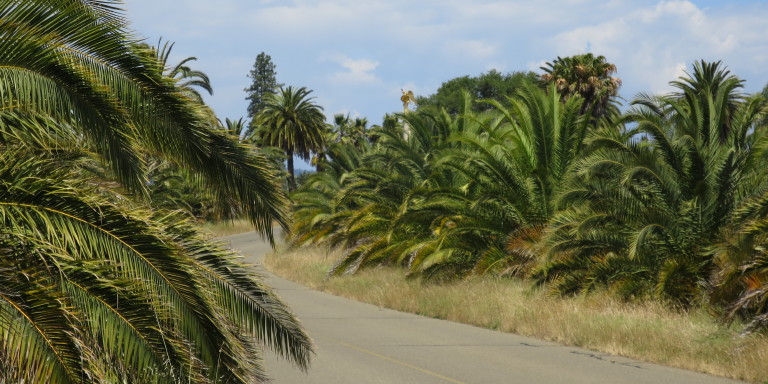
As I enter the palm-tree-lined section of Apollo, the statue on the column comes into view again, peeking out from behind the trees. The walk goes downhill after this.
We begin remembering ourselves well, but imperceptibly lose the thread. We only notice the moment we wake up, not the moment we fall asleep.
As I go back down the road toward the office, while looking up, my gaze catches a vulture–extremely high, silhouetted by the clouds. Usually they fly up a few hundred feet, but this one must be a thousand feet or more.
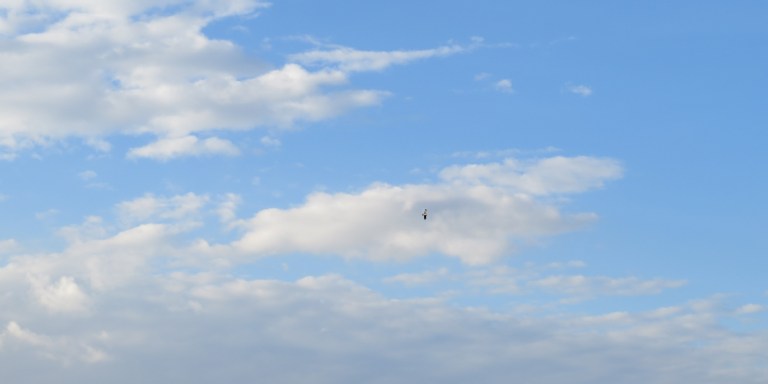
How much it is like what I seek with my humble efforts to be present. On some occasions in my life I have been definitely and solidly present, in an intense and conscious way. This was the fruit of simple efforts such as I made in this walk, so it seems. These states must be something incalculably high, like the vulture way up in the clouds. Perhaps I will never actually know this for sure. The states will probably survive me and this life, only to become – to become – what?
Dropping the ‘I’
When I am present, my usual sense of ‘I’ disappears. There is only the awareness that I am here now and of the impressions of the sky and the clouds, the trees and the grasses, blown about by the late spring breeze.
All life is being lived.
Who is living it, then?
Is it the things themselves,
or something waiting inside them,
like an unplayed melody in a flute?
Is it the winds blowing over the waters?
Is it the branches that signal to each other?
Or is it flowers
interweaving their fragrances,
or streets, as they wind through time?
Is it the animals, warmly moving,
or the birds, that suddenly rise up?
Who lives it then? God, are you the one
who is living life?
-Rainer Maria Rilke
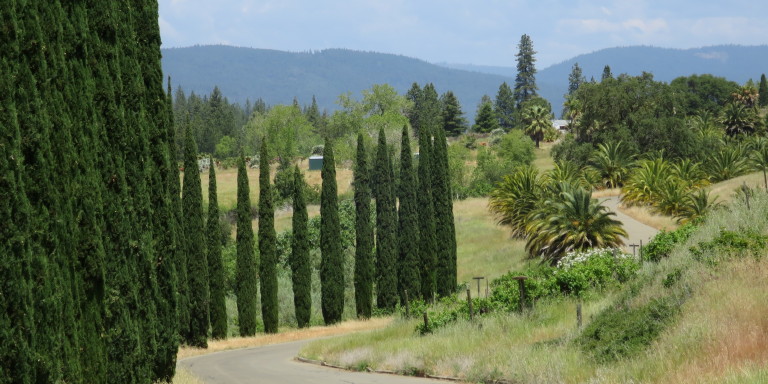
David Tuttle is the author of a Facebook page and has a closed group discussion on using the Fourth Way. For more, see his Gurdjieff Ouspensky Self Observation group. Other articles by David for the Fourth Way Today include The Uncarved Block.
